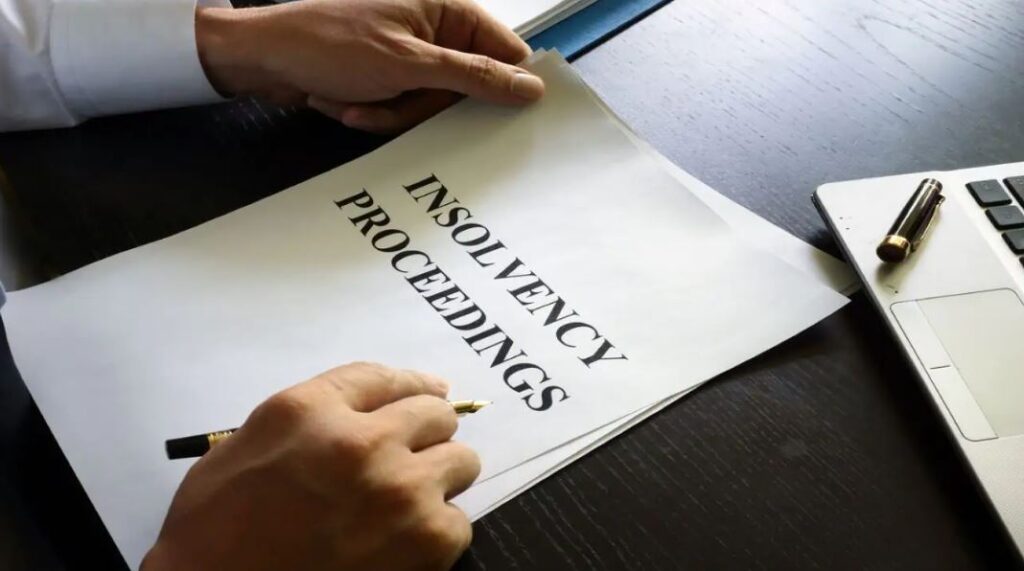In times of financial distress, businesses and individuals often find themselves in need of expert guidance and assistance. This is where insolvency lawyers come into the picture. With their deep understanding of the legal framework surrounding insolvency and their ability to navigate complex financial situations, these lawyers play a crucial role in helping clients turn the page and achieve financial recovery.
Understanding the Role of Insolvency Lawyers
Insolvency lawyers are legal professionals who specialize in helping individuals and businesses deal with financial difficulties. They possess a comprehensive understanding of the laws and regulations surrounding insolvency, enabling them to provide expert advice and representation to their clients.
The Legal Framework of Insolvency
The legal framework of insolvency is a complex landscape that governs the rights and obligations of debtors and creditors. Insolvency lawyers are well-versed in this framework, which includes various statutes and regulations that outline the processes and procedures involved in financial recovery. Visit https://floridadivorcehelp.net/from-crisis-to-solution-how-insolvency-lawyers-provide-financial-relief to get how insolvency lawyers provide financial relief.
Within this intricate legal framework, insolvency lawyers play a crucial role in guiding their clients through the maze of laws and regulations. They act as navigators, helping individuals and businesses understand their rights and obligations, and ensuring that they comply with all legal requirements.

Moreover, insolvency lawyers are not only knowledgeable about the legal aspects of insolvency, but they also possess a deep understanding of the economic and financial implications that their clients may face. They are well-versed in analyzing financial statements, assessing the viability of businesses, and identifying potential risks and opportunities for their clients.
Key Responsibilities of Insolvency Lawyers
Insolvency lawyers take on a range of responsibilities to assist their clients in achieving financial recovery. These responsibilities include conducting thorough assessments of clients’ financial situations, devising tailored recovery plans, negotiating with creditors, managing assets, and overseeing the liquidation process where necessary.
One of the primary responsibilities of insolvency lawyers is to conduct comprehensive assessments of their clients’ financial situations. This involves analyzing financial statements, reviewing contracts and agreements, and identifying any potential legal issues or risks that may arise during the insolvency process.
Based on their assessments, insolvency lawyers then devise tailored recovery plans for their clients. These plans take into account the unique circumstances and goals of each individual or business, aiming to provide the most effective and efficient path to financial recovery.
In addition to devising recovery plans, insolvency lawyers also play a crucial role in negotiating with creditors on behalf of their clients. They use their expertise in insolvency law and their knowledge of their clients’ financial situations to seek favorable outcomes and agreements that can help their clients regain financial stability.
Furthermore, insolvency lawyers are responsible for managing assets during the insolvency process. This includes identifying and valuing assets, protecting them from potential risks, and ensuring that they are utilized in the most beneficial way for their clients’ financial recovery.
Lastly, insolvency lawyers oversee the liquidation process when it is necessary. This involves handling the sale of assets, distributing funds to creditors, and ensuring that the process is carried out in accordance with all legal requirements.
The Process of Financial Recovery
Financial recovery is a multi-faceted process that involves several key stages. Insolvency lawyers guide their clients through each of these stages with expertise and precision.
Initial Assessment and Planning
The first step in the financial recovery process is conducting a comprehensive assessment of the client’s financial situation. Insolvency lawyers gather relevant information, analyze the extent of the financial distress, and develop a strategic plan to address it.
During the initial assessment, insolvency lawyers meticulously examine the client’s financial records, including income statements, balance sheets, and cash flow statements. They leave no stone unturned, scrutinizing every detail to gain a clear understanding of the financial challenges at hand. This thorough analysis allows them to identify the root causes of the financial distress and devise effective strategies to overcome them.

Debt Restructuring and Negotiation
One of the main tasks of insolvency lawyers is debt restructuring and negotiation. They work closely with clients and creditors to develop manageable repayment plans, negotiate favorable terms, and reach agreements that work towards the goal of financial recovery.
During the debt restructuring and negotiation stage, insolvency lawyers employ their extensive knowledge of bankruptcy laws and regulations to advocate for their clients’ best interests. They skillfully navigate the complex landscape of debt negotiations, exploring various options such as debt consolidation, refinancing, or debt forgiveness. Through strategic negotiations, they aim to alleviate the burden of overwhelming debt and create a sustainable path towards financial stability.
Asset Management and Liquidation
In cases where the financial situation cannot be resolved through negotiation, insolvency lawyers oversee the process of asset management and liquidation. They ensure that assets are appropriately valued, managed, and, if necessary, liquidated in compliance with legal requirements.
Asset management and liquidation require meticulous attention to detail and a deep understanding of the legal framework surrounding insolvency. Insolvency lawyers work closely with appraisers, accountants, and other professionals to determine the value of the client’s assets and develop a comprehensive plan for their management or liquidation. They ensure that all legal obligations are met, protecting the client’s interests while adhering to the relevant laws and regulations.
The Impact of Insolvency Lawyers on Financial Recovery
The involvement of insolvency lawyers can have a significant impact on the success of the financial recovery process. Their specialized expertise and experience contribute to several key benefits.
Insolvency lawyers possess the knowledge and skills to efficiently navigate the complexities of the legal system and financial recovery process. By leveraging their expertise, they can help expedite the recovery process, reducing the time it takes to achieve a favorable outcome.
However, their impact goes beyond just speeding up the recovery process. Insolvency lawyers also play a crucial role in providing guidance and support to clients during these challenging times. They understand the emotional toll that financial distress can take on individuals and businesses, and they offer a compassionate and empathetic approach to their clients.
One of the ways insolvency lawyers minimize financial loss is through their strategic negotiation skills. They have a deep understanding of the legal framework surrounding debt restructuring and asset management. By carefully analyzing the financial situation of their clients, they can negotiate with creditors to create favorable repayment plans or even secure debt forgiveness.
Moreover, insolvency lawyers are well-versed in the intricacies of bankruptcy laws and regulations. They ensure that all aspects of the financial recovery process are carried out in compliance with applicable laws and regulations. This helps clients navigate potential legal pitfalls and ensures that their actions align with legal requirements and obligations.
Furthermore, insolvency lawyers often collaborate with other professionals, such as accountants and financial advisors, to provide a comprehensive approach to financial recovery. This multidisciplinary approach allows for a more holistic assessment of the client’s financial situation and facilitates the development of effective strategies.
In conclusion, the impact of insolvency lawyers on financial recovery cannot be overstated. Their specialized expertise, strategic negotiation skills, and commitment to legal compliance contribute to a more efficient and successful recovery process. By working closely with their clients and offering comprehensive support, insolvency lawyers play a vital role in helping individuals and businesses overcome financial challenges and achieve a brighter financial future.

Selecting the Right Insolvency Lawyer
Choosing the right insolvency lawyer is crucial for those seeking financial recovery. The process of navigating insolvency can be complex and overwhelming, making it essential to have a legal expert by your side. Here are some factors to consider when selecting an insolvency lawyer.
Essential Skills and Experience
When it comes to insolvency law, experience matters. Look for a lawyer who has extensive experience in the field of insolvency law. They should possess the knowledge and skills necessary to handle complex financial situations and have a track record of successful outcomes for clients. A seasoned insolvency lawyer will have a deep understanding of the legal framework surrounding insolvency and can provide valuable insights and strategies to help you achieve financial stability.
Evaluating Reputation and Track Record
Consider the reputation and track record of potential insolvency lawyers. Client reviews, testimonials, and references can provide insight into their professionalism, diligence, and ability to deliver results. A lawyer with a solid reputation in the industry is more likely to have established relationships with key stakeholders, such as creditors and bankruptcy courts, which can be advantageous in your case. Additionally, a lawyer with a proven track record of successful outcomes can instill confidence and peace of mind during a challenging time.
Understanding Fees and Costs
It is essential to have a clear understanding of the fees and costs associated with hiring an insolvency lawyer. Discuss this aspect upfront to ensure transparency and to avoid any surprises down the line. A reputable lawyer will provide you with a detailed breakdown of their fees, including any additional costs that may arise throughout the process. This transparency allows you to plan and budget accordingly, minimizing any financial strain during an already stressful period.
Expanding your knowledge on insolvency law can also be beneficial. Understanding the legal concepts and procedures involved can help you make informed decisions and actively participate in your own financial recovery. While your insolvency lawyer will guide you through the process, having a basic understanding of the law can empower you to ask relevant questions and contribute to the development of a robust legal strategy.
In conclusion, insolvency lawyers have a vital role to play in financial recovery. They possess the expertise and knowledge to guide clients through the legal framework of insolvency and provide effective strategies for achieving financial stability. By leveraging their skills, these lawyers can expedite the recovery process, minimize financial losses, and ensure compliance with legal requirements. Selecting the right insolvency lawyer is a crucial step, and considering factors such as skills, reputation, and costs can help ensure a successful partnership. With the support of an experienced insolvency lawyer, individuals and businesses can turn the page on financial distress and embrace a brighter financial future.



